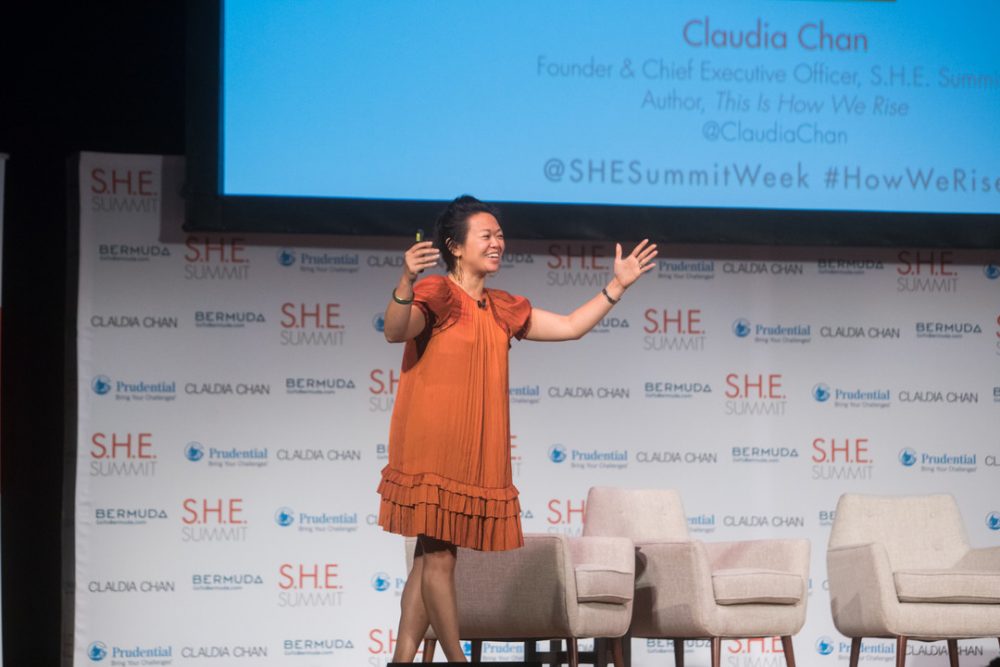3 Ways To Shift Your Mindset From Being An Employee To A Change Agent
Whether we’re thinking of our family dynamics or the impact we envision for our career, our passion and purpose typically align us on a path directed toward change.
The past seven years of building S.H.E. Summit, I’ve learned that real change is rarely isolated to a top-down effort. High-level demands often result in momentary shifts that don’t last. Culture call outs like we’ve seen at Uber, Starbucks, and Nike are deep-seated reminders that the individuals who make up organizations are the voices prompting senior level staff to update their actions or risk sacrificing success.
The individuals in these stories, they’re you! You are the change agent. There is any number of approaches that can spark workplace change, and none of them are possible without the change agent showing up. The key to success is cultivating the mindset before taking specific action. To prep yourself to make the shift, try the following:
1. Think of your company as a micro-society…
Traditionally organizations are treated as an entity removed from our sphere of direct influence. What happens we think of them as a group of individuals who are engaged in a collective goal? Companies are people, which means even one person pursuing their passion can help tip the balance of how a company responds or reacts to an issue. Thinking of a company as a micro-society made up of people making choices enables you to understand that the path to becoming a change agent starts with a simple first step — having a strategic conversation with just one more person in your micro-society. When we treat the investment of energy at work like an investment in our local communities, we are poised for a domino effect to follow.
2. Daily activations can be as powerful as corporate-wide change…
Choosing a large goal to work towards may be key when changing your workplace and inspiring others to do the same, but convincing them to actually participate means breaking that larger goal down into actionable steps. Adjusting your mindset to reflect a micro-society perspective for you and your co-workers is like picking up litter as you walk down the street. Find a common point of interest with your co-workers, that answers the WHY?When they see how they as individuals and you as a group will all benefit, you’ve discovered the energy source that will fuel the ongoing effort. Daily or weekly activations can help keep people get and stay involved.
3. Start Where You Are and Use What You Have to Your Advantage…
We don’t all have the drive or vision to bring a side-hustle passion project to fruition. We often forget the power we do have with a full-time situation. Many companies invest in their intellectual resources by allowing employees to spend a percentage of time on side projects or participate in ERGs to improve awareness and representation. When you take advantage of your full-time position you can double the benefit of impact and career development when you focus your impact goals to making changes from within.
When you bring internal resources into play by rallying coworkers you have a better chance of sparking the meaningful change that shows upper management your vision is a win-win for all stakeholders involved. Success and impact bring value to everyone involved.
Exploring the potential impact for change that organizations and their employees play in making society’s positive change wish-list a reality, we can’t underestimate how seemingly small shifts in perspective have the power to move the needle in big ways. Top down change is only one approach that is not scalable for the level of change we could make. By shifting the mindset of the individuals driving companies, and we have to make sure those top leaders are engaging all levels of talent and reminding their teams of the agency each of them has.
Building out talent networks with a mindset for making changes will have the ripple effect that extends into communities far and wide. In This is How We Rise, I say, “If we don’t act up, speak up and act against injustices, we let others who may lack integrity and not have our best interests in mind determine the living standards of generations to come.” When we decide to use what we have, we can start making the changes we want to see our reality.



